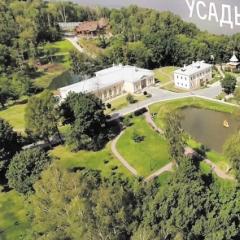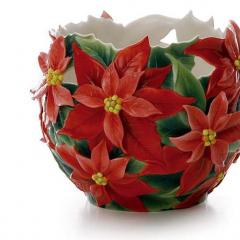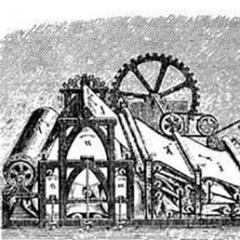Spar supermarket chain: development history, product range, network geography and contact information. History of SPAR SPAR history of creation
SPAR was founded in 1932 in Holland by Adriaan van Well as a voluntary network of grocers called "DESPAR". The main goal is to ensure cooperation between independent wholesalers and retailers in response to the emergence of large retail chains in Europe.
1940s
The name DESPAR comes from the first letters of the motto “Door Eendrachtig Samenwerken Profiteren Allen Regelmatig”, which translates as “Everyone benefits from cooperation”. The word SPAR means spruce in Dutch, and from the very beginning the image of this tree was used as a symbol for the network. The SPAR concept began to spread outside of Holland in 1947, when Belgium became a second country. In the late 1940s, the name DESPAR was shortened to SPAR.
1950s
During the 1950s, SPAR spread rapidly throughout Europe. In 1953, SPAR International was created, with Adriaan Van Well as its first president, and the first SPAR International Congress was held in Holland in 1955. It marked SPAR's ambition to expand beyond Europe and become a global organization. By 1959, the SPAR family included wholesalers and retailers from 9 countries.
1960s
Over the next 20 years, SPAR continued to expand in Europe, but most importantly, the network expanded to new continents - Africa and Asia. During this period, the SPAR family expands to 14 countries. In 1963, SPAR South Africa was created, and in 1977, SPAR Japan.
1968
In 1968, SPAR International introduced the new SPAR logo.
80's - 90's
Between 1980 and 1999, the SPAR network continued to grow in existing markets and expanded its presence into a further 7 countries. By 1999, SPAR operated in 21 countries.
2000s
Since 2000, SPAR has expanded into major developing countries in Russia, China and India, while continuing to expand in Central and Eastern Europe and Africa. The success of SPAR in existing markets, as well as the high interest in the SPAR license from new countries and territories, indicate that the SPAR partnership business model corresponds to the current level of food retail development.
K:Companies founded in 1932Spar - Dutch chain of stores- supermarkets with headquarters in Amsterdam. Represents a purchasing cooperative- retailers are grouped under a single brand in order to obtain the most favorable conditions from suppliers.
Story
SPAR was founded in 1932 Adriaan van Well as a voluntary network of grocers called "De SPAR". The main goal is to maintain cooperation between independent wholesalers and retailers in response to the emergence of large retail chains in Europe. The name of the network comes from the first letters of the motto: “Door Eendrachting Samenwerken Profiteren Allen Regelmating”, which translated means “We all benefit from cooperation.” The word itself spar in Dutch means " spruce", this tree is depicted on the company logo.
The SPAR concept began to spread outside of Holland only in the late 1940s, with Belgium becoming the second country. During the 1950s the SPAR concept quickly spread throughout Europe. SPAR International was created in 1953, with Adrian van Well as its first president, and the first SPAR International Congress was held in Holland in 1957. 
Activity
SPAR International unites under its banner more than 15,000 stores in 34 countries (mainly European countries, but also South Africa , Australia , Argentina). Main formats: “Spar” (sales area 500-1000 m²) and “EuroSpar” (1000-3000 m²).
The total turnover of the network is over 27 billion euros per year.
In Russia
SPAR Master Franchisee Russia is Spar Central Russia, it controls the company Spar Retail, a small stake belongs to Spar International. The Russian Spar chain consists of more than 300 stores located in many cities across the country. The revenue of Russian stores in 2005 was over $150 million.
Write a review about the article "Spar"
Links
- (English)
- (Russian)
Excerpt describing Spar
- Monseigneur! [Your Highness!] - Pierre cried out in a not offended, but pleading voice.Davout raised his eyes and looked intently at Pierre. They looked at each other for several seconds, and this glance saved Pierre. In this view, apart from all the conditions of war and trial, a human relationship was established between these two people. Both of them in that one minute vaguely experienced countless things and realized that they were both children of humanity, that they were brothers.
At first glance for Davout, who only raised his head from his list, where human affairs and life were called numbers, Pierre was only a circumstance; and, not taking the bad deed into account on his conscience, Davout would have shot him; but now he already saw a person in him. He thought for a moment.
– Comment me prouverez vous la verite de ce que vous me dites? [How will you prove to me the truth of your words?] - Davout said coldly.
Pierre remembered Rambal and named his regiment, his last name, and the street on which the house was located.
“Vous n"etes pas ce que vous dites, [You are not what you say.],” Davout said again.
Pierre, in a trembling, intermittent voice, began to provide evidence of the truth of his testimony.
But at this time the adjutant entered and reported something to Davout.
Davout suddenly beamed at the news conveyed by the adjutant and began to button up. He apparently completely forgot about Pierre.
When the adjutant reminded him of the prisoner, he frowned, nodded towards Pierre and said to be led away. But Pierre didn’t know where they were supposed to take him: back to the booth or to the prepared place of execution, which his comrades showed him while walking along the Maiden’s Field.
He turned his head and saw that the adjutant was asking something again.
- Oui, sans doute! [Yes, of course!] - said Davout, but Pierre didn’t know what “yes” was.
Pierre did not remember how, how long he walked and where. He, in a state of complete senselessness and dullness, not seeing anything around him, moved his legs along with the others until everyone stopped, and he stopped. During all this time, one thought was in Pierre’s head. It was the thought of who, who, finally sentenced him to death. These were not the same people who interrogated him in the commission: not one of them wanted and, obviously, could not do this. It was not Davout who looked at him so humanly. Another minute, and Davout would have realized that they were doing something wrong, but this moment was interrupted by the adjutant who entered. And this adjutant, obviously, did not want anything bad, but he might not have entered. Who was it that finally executed, killed, took his life - Pierre with all his memories, aspirations, hopes, thoughts? Who did this? And Pierre felt that it was no one.
Network of stores near MoscowSpar, which is developing under a Dutch franchise, may pass into the hands of new owners. In the fall of 2013, Azbuka Vkusa acted as the future owner, but the deal fell through. Now the federal X5 Retail Group is among the contenders. Whose will it be? Spar?

The Moscow region Spar chain may become a new acquisition of the large FMCG holding X5 Retail Group, which currently operates three lines of grocery stores: Pyaterochka, Perekrestok and Karusel. The likelihood of a purchase is reported by RBC daily. Among the potential buyers is also the premium retailer Azbuka Vkusa.
The Dutch brand Spar is owned by two companies “SVA Trading” and “SVA Region” and is being developed under a franchising program by businessman Sergei Inozemtsev. As it became known, the franchisee’s license to operate under a foreign brand expires in April of this year. Now Spar owns eight hyper- and supermarkets in the cities of the Moscow region: Zhukovsky, Ramenskoye, Dmitrov, Voskresensk and Elektrostal. The company also has its own distribution center with an area of 6,000 square meters. meters on Novoryazanskoye Highway and a factory-kitchen. The Russian network is estimated by market experts at 100-140 million dollars.
To date, Spar is not actively negotiating with any of the companies and does not comment on the current situation, although not so long ago the fate of the franchise business was practically decided. In mid-autumn 2013, information appeared that before the end of the year, the Moscow region chain could become the acquisition of the premium retailer Azbuka Vkusa. After submitting an application to the Federal Antimonopoly Service and its approval, a preliminary agreement was concluded between the parties. At the beginning of October 2013, the “happy buyer” confirmed that the agreement to acquire 100% of SVA’s business had been signed. In addition, the company was already making plans to integrate the retail business of the acquired companies, while retaining the supermarket staff and network management. As Vedomosti wrote, it was assumed that until the spring of 2014 (the expiration of the license) the stores would continue to operate under the same sign, and then change it to “Azbuka Vkusa.”
Later, information appeared that the premium network’s first ever deal was postponed for several months. Then representatives of ABC of Taste explained this as “the inappropriateness of acquiring Spar at the end of the year,” deciding to wait a few months. At that time, publications cited various reasons for the failure of the purchase, including the fact that the parties did not agree on the price or could not agree on other parameters.
Today, retail experts have different assessments of the chances of the two main contenders for the purchase of assets: X5 Retail Group and ABC of Taste. They both share the premium segment with Globus Gourmet, developing their own networks (for X5 it is Green Crossroads). And if the first federal operator in the Moscow region has only three premium stores, then the geography of ABC of Taste is wider: 13 points in the region.
“Spar does not belong to the premium segment. Therefore, which of the applicants would be more profitable to acquire these assets depends on the plans of the companies. If we transfer the existing Spar supermarkets to the premium segment, then this will be beneficial for both, since neither Green Perekrestok nor Azbuka Vkusa are present in the designated cities of the Moscow region, comments Renat Zhamaldinov, head of the marketing and consulting department of BASE PROPERTY GROUP. - The second possible strategy is to leave supermarkets in the existing segment. But to date, nothing has been announced about the development of the format, for example, the “blue” or “green” ABC of Taste. But for X5, such plans look quite realistic: even despite the fact that the usual “Perekrestoks” are already present in Dmitrov, Ramenskoye and Zhukovsky.
ZAO SPAR RETAIL is one of the largest partners in Russia of the Dutch SPAR chain. Today it unites 27 stores in Moscow, Vladimir and the cities of the Moscow, Vladimir, Ivanovo and Tver regions. History In 1932, a group of Dutch grocers organized a purchasing cooperative. The purpose of this voluntary association was to obtain favorable conditions from the best product suppliers. They named their company “de SPAR”, which means “Spruce” in Dutch. The company's name is an abbreviation of its slogan: “We all benefit from cooperation.” The SPAR network grew rapidly and gained momentum, expanding beyond Holland in the late 1940s. The second country to open SPAR was Belgium. During the 1950s, SPAR stores began to open throughout Europe. In 1953, SPAR International was created in Holland, with Adrian Van Well (the man who founded the company) as its first president. In 1959, the SPAR family included wholesalers and retailers from 9 countries. In the 60s and 70s, SPAR was opened in South Africa and Japan. Over the past 20 years, the network has developed particularly rapidly. SPAR supermarkets have appeared in Eastern Europe and on other continents - Argentina and Australia. SPAR began operating in Russia in 2000. SPAR currently operates in four formats: INTERSPAR, EUROSPAR, SPAR and SPAR Express. By the end of 2011, 300 stores were opened in Russia under the SPAR brand. Today SPAR Russia is a community of 11 partners. SPAR in numbers SPAR is the world's largest supermarket chain, with approximately 13,700 supermarkets in 35 countries worldwide, with a turnover of over €27 billion. SPAR supermarkets serve more than 9 million customers every day.


